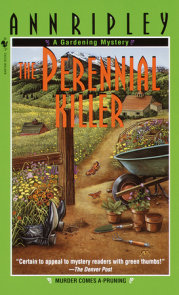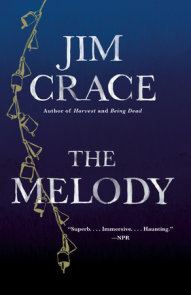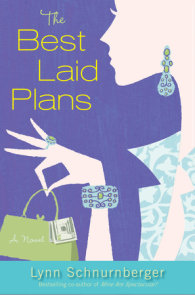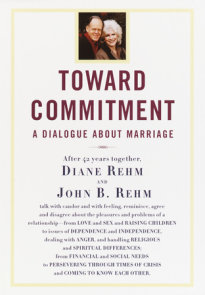READERS GUIDE
Introduction
By turns touching and riotously entertaining, Niagara Falls All Over Again brings to life one of the most unique narrators to grace a novel in recent memory–and he has an equally mesmerizing story to tell. In vivid scenes, vaudeville veteran Mose Sharp recalls his journey from small-town Iowa to gritty New York theaters and the high-rolling dawn of Hollywood, evoking haunting images of a lost American landscape along the way.Teamed with a volatile performer named Rocky Carter, Mose slips into a role that will reverberate throughout all aspects of his life: the scrawny straight man to a boisterous big guy. National Book Award finalist Elizabeth McCracken showcases her storytelling powers as she brings to life a comedy duo whose performances both on- and offstage are simply riveting. Carter and Sharp defy the odds, and for the next thirty years they triumph in the hardscrabble world of comedy. Both men struggle to reconcile the intensity of their careers with the realities of relationships, families, and loss. But while Rocky tries to drown his demons in a series of very public, self-destructive pursuits, Mose’s seemingly easygoing nature also belies pain–a tragedy from his youth that racks him with guilt.
A novel populated by vagabonds, temptresses, stars, and Main Street lifers, Niagara Falls All Over Again delivers a dizzying, exhilarating performance. The questions and discussion topics that follow are intended to enhance your reading of Elizabeth McCracken’s Niagara Falls All Over Again. We hope they will enrich your experience of this award-winning novel.
Questions and Topics for Discussion
1. What are your first impressions of Carter and Sharp? Did those first impressions prove to be accurate?
2. Does Mose’s approach change when he’s telling a story about his childhood in Iowa, compared with tales from showbiz? How does he balance the comic and tragic elements of his recollections? What tone is set by the scene titles?
3. What accounts for the special bond that developed between Hattie and Mose? What does her roof climbing indicate about her nature? How do you respond to the provocative "what if" that accompanies her death? What might Mose’s life have been like if she had not died at such a young age and in such a sudden way?
4. How is Mose affected by his memories of his mother and of Hattie? How does he perceive women throughout his life? What qualities set Jessica apart and signal the end of his bachelor days? What distinguishes his love for her from Rocky’s love for Penny?
5. What do the Sharp children demonstrate about innate talents versus other factors in shaping a life? Besides taking the helm of his father’s store, what responsibilities are placed on Mose as the only son among daughters Annie, Ida, Fannie, Sadie, Hattie, and Rose?
6. Part of the shtick between Carter and Sharp involves hitting: Mose has to continually lose patience with Rocky, then hit him. Why is this a key ingredient to their popularity? Does any of their stage relationship match offstage reality?
7. Mose fills a variety of roles: prodigal son, "professor," playboy, big-city star, midwestern boy. What parts of his life are genuine? Who gets to see the side of him that is not an act? How much of his act is necessary for his survival?
8. To Mose, how significant is Judaism to his identity? Would the beloved rabbi of his ancestry be proud of him? How did anti-Semitism influence Mose’s sense of his place in the world?
9. In "Niagara Falls the First Time" (page 91) Mose talks Rocky out of going over the falls in a barrel. What makes this scene appropriate for the novel’s title? In what way does this scene replay throughout the characters’ lives?
10. What do you believe accounts for the differences in temperament between Carter and Sharp? Why do they make such dissimilar choices? What enables them to remain together for so many years despite these differences? How do these differences make for good comedy? Do those same traits also make for an enduring friendship?
11. Money is a source of friction between Carter and Sharp. Would you have agreed to Rocky’s terms if you have been in Mose’s position? How might the novel have unfolded if Tansy had been the narrator?
12. Chapter Five, "Good-bye, Freddy, Good-bye," provides more details about Rocky’s original sidekick, Fred Fabian. Was Mose the key to Rocky’s success, or was he simply in the right place at the right time?
13. The drowning of Jessica and Mose’s daughter almost ends their marriage. Following wise advice, Mose manages to reach out to Jessica and restore their relationship. He also rekindles his friendship with Rocky. What keeps him from making that friendship last permanently? What must be in place in order for two people to weather a tragedy together?
14. When Mose returns to Iowa with Rocky in tow, how does his hometown measure up to his memories of it? At that point in his life, where is he really most at home? How does Mose define home near the end of the novel?
15. Discuss the techniques Elizabeth McCracken uses to deliver the experience of seeing Carter and Sharp perform. What enables her writing to become "cinematic?" For the audiences described in the novel, how would the experience of a live show compare to one broadcast on the radio or projected on film? How do these entertainment media compare to the experience of reading books for pleasure?
16. If you were to be featured on a reunion television show like the one that reunited Carter and Sharp, which figures from your past would you want to see? Which ones would you dread seeing? What myth would you want to dispel, as Rocky did when he explained that Carter and Sharp had broken up?
17. Does Junior have an accurate understanding of his father? What was your reaction to Mose’s sleeping with Penny? Was that truly the basis for Rocky’s long-standing anger?
18. Mose becomes a widower and outlives most of his relatives, while Rocky ends up in Reno with Gertrude. How does this bittersweet ending compare with what you know about other Hollywood duos and the ways in which they concluded their careers?
19. Are there any 21st-century equivalents to vaudeville? What did the novel illustrate about the way American entertainment has evolved? What does it take to make a contemporary audience laugh?




















